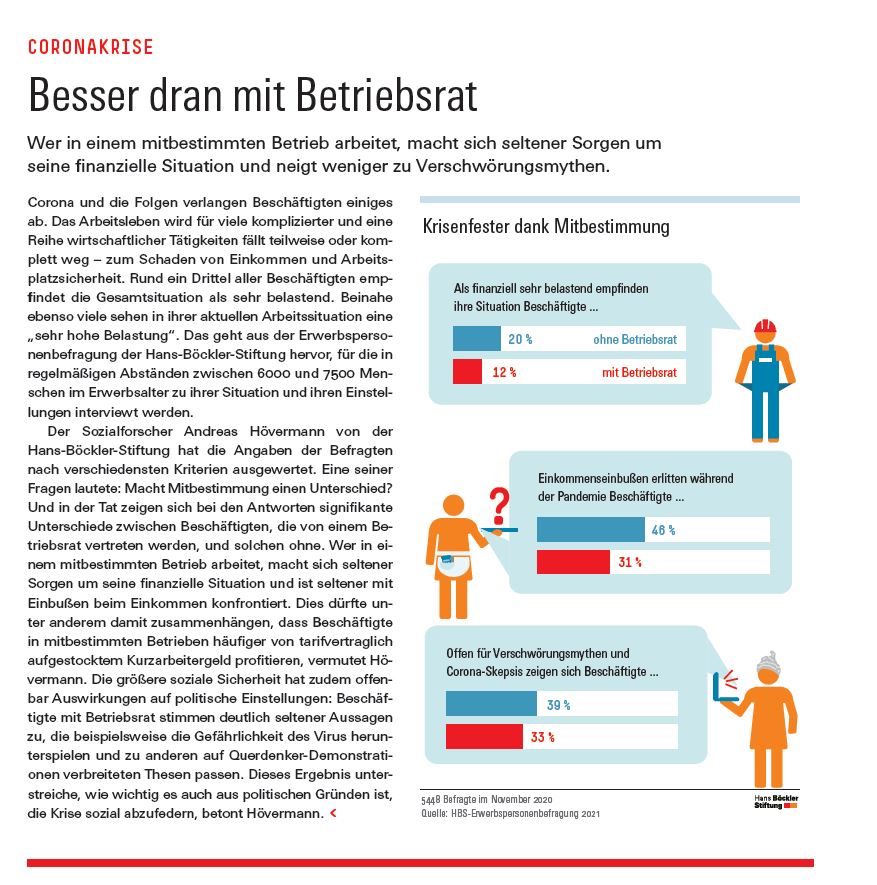Today I published a new study that analyzed the HBS-working force panel regarding Covid-Skepticism and Conspiracy Myths (N=5.047). Here are the four main findings:
Covid Skepticism and Conspiracy Myths remain widespread in Germany in Summer 2021 – regardless of lower Covid-incidences or lower protests: 18% of the German workforce with agreement to all items. Agreement is rather rising than decreasing compared to earlier timepoints in the pandemic.
The items of Covid Skepticism and harsh Conspiracy Myths are very highly correlated: respondents sharing skepticism in most cases also agree to Conspiracy Myths – only a few differentiate between the items.
Several groups with above-average agreement (interestingly these groups are very stable: the same groups with above-average agreement last summer) 1. The Deprived (low income or low education): increased powerlessness; 2. The financially Burdened during the Crisis (massive loss of control); 3. The Younger (who perceive lower Covid health threats while suffering everyday hardship); 4. Those spared by the virus (here it´s easier to maintain myth of harmless virus) and 5. Respondents in Eastern Germany (who report a much higher distrust in political institutions).
Conspiracy Myths pose a signfificant threat to democratic societies as they have problematic behavior implications: 1. Those agreeing to Skepticism and Conspiracy Myths with very low commitment to established German parties; they predominantly vote for the right-wing populist AfD or do not vote at all. 2. They report much more frequently reckless and rule-violating pandemic behavior. 3. They very frequently have not been vaccinated yet and do not intent to.
The full study can be downloaded here. Here is the press release.
